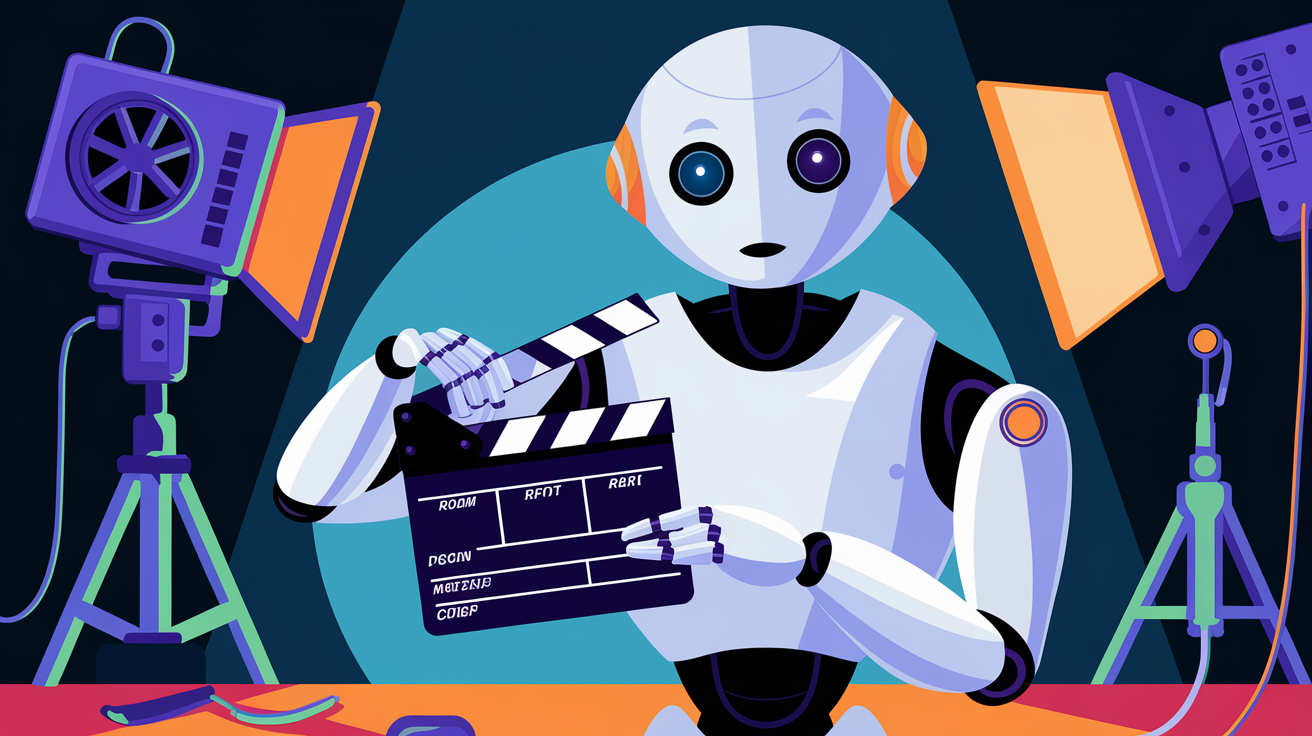How Artificial Intelligence is Transforming Movie Making: Innovations and Impacts
In recent years, the intersection of artificial intelligence (AI) and movie making has sparked a revolution in the film industry. The integration of AI technology in various stages of film production is not only reshaping the way movies are made but also broadening the horizons of creativity and storytelling. This transformation signifies a paradigm shift as filmmakers and production companies leverage AI to enhance efficiency, reduce costs, and push the limits of what is possible in cinema.
The Role of AI in Movie Production
The infusion of AI into the movie-making process is vast and varied, impacting every phase from pre-production to post-production. The role of AI in movie production is redefining traditional methods, offering new tools and techniques that elevate the filmmaking experience.
AI in Scriptwriting and Storyboarding
Scriptwriting and storyboarding are foundational elements of filmmaking, often requiring significant time and creative input. AI tools like machine learning algorithms are now capable of analyzing vast amounts of data from scripts, films, and books to generate new storylines and dialogue. These tools can identify successful plot structures, character development, and even predict audience responses. By expediting the scriptwriting process, AI allows writers to focus more on creative aspects while ensuring that their narratives resonate with audiences.
AI in Filming and Directing
The use of AI in filming and directing is particularly transformative. Automated cameras and directing software enable filmmakers to capture complex sequences with unprecedented precision and ease. AI-powered drones offer dynamic aerial shots that were once difficult and expensive to obtain. Additionally, virtual directors driven by AI can assist in making real-time decisions on set, optimizing shooting schedules, and ensuring the director’s vision is maintained throughout the process.
AI in Editing and Post-Production
Editing and post-production are where AI demonstrates its most remarkable capabilities. AI-driven editing software can sift through extensive footage, selecting the best takes, and assembling them into coherent scenes. Special effects that would traditionally require extensive manual labor can now be enhanced or created entirely through AI algorithms. From refining sound design to color grading, AI tools streamline these processes, allowing editors to focus on the creative final touches that bring a film to life.
Benefits of Using AI in Movie Making
The incorporation of AI into movie-making processes brings a plethora of benefits that contribute to the industry’s evolution. These advantages can be categorized as follows:
- Cost Reduction: AI technology reduces labor costs by automating time-consuming tasks and minimizing human error, ultimately lowering production budgets.
- Time Efficiency: With AI handling repetitive and mundane tasks, filmmakers save valuable time, enabling them to shift focus to creative and strategic decision-making.
- Enhanced Creativity: AI provides filmmakers with innovative tools and insights that foster creativity, allowing them to explore new narratives and visual techniques that were previously inaccessible.
Challenges and Limitations of AI in Films
Despite its numerous benefits, the integration of AI in films does present certain challenges and limitations that need to be addressed.
Ethical Concerns: AI-generated content raises ethical questions about authorship and creativity. The potential for AI to replace human roles in the creative process sparks debate over the authenticity of art and storytelling.
Creative Constraints: While AI can enhance creativity, there is also a risk of homogenization as AI systems may favor patterns based on existing successful formulas, stifling originality and innovation.
Reliance on Technology: An over-reliance on AI technology could result in a loss of traditional filmmaking skills and a dependence on automated systems, potentially undermining the art of cinema.
Case Studies and Examples
The real-world application of AI in movie making is best illustrated through successful case studies and examples from recent films that have embraced this technology.
- “The Irishman” (2019): This film employed AI-driven de-aging technology to transform actors Robert De Niro, Al Pacino, and Joe Pesci into younger versions of themselves, offering a glimpse into the potential of AI in character portrayal.
- “Ex Machina” (2014): The film utilized AI to create Ava, a robot with human-like qualities, challenging perceptions of AI in storytelling and character development.
- “Morgan” (2016): An AI-created trailer for “Morgan” showcased the capability of AI to analyze audience preferences and create compelling promotional content.
The Future of AI in Movie Making
As AI technology continues to evolve, its influence on movie making is expected to grow, opening new frontiers and possibilities within the industry.
Predictive Analytics and Audience Engagement: Future AI systems may harness data to predict box office success, allowing filmmakers to tailor their projects to audience preferences, thus increasing the chances of commercial success.
Enhanced Virtual Reality (VR) and Augmented Reality (AR): Integrating AI with VR and AR technologies can lead to immersive storytelling experiences, redefining how audiences engage with films and interact with narratives.
AI-Driven Personalization: AI could enable personalized viewing experiences, tailoring films to individual viewer preferences by altering plotlines, character arcs, and outcomes.
Continuous Improvement in Visual and Special Effects: Ongoing research and development in AI will enhance the quality of special effects and CGI, enabling filmmakers to achieve greater realism and detail at reduced costs.
Conclusion
The impact of artificial intelligence on movie making is profound, offering both exciting opportunities and complex challenges. As AI technology continues to mature, it will undoubtedly redefine the creative landscape of the film industry, pushing the limits of what is possible in storytelling and production. By embracing these innovations, filmmakers can enhance their creative efforts, streamline production processes, and captivate audiences with groundbreaking visual experiences.
What are your thoughts on the role of AI in movie making? How do you think it will shape the future of cinema? Share your insights and join the conversation as we explore the limitless possibilities that AI brings to the world of film.







